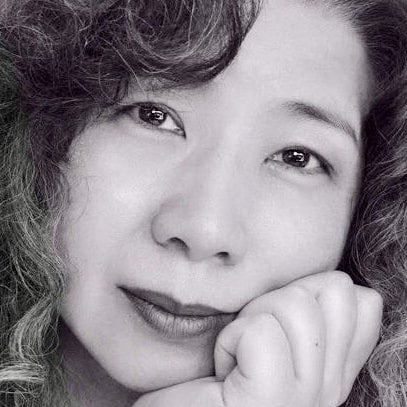BIO
Stella Zhang was born in Beijing in 1965, a year before the Cultural Revolution that uprooted the lives of many in her and her parents’ generation. Stella’s father was an acclaimed ink wash painter and professor at Central Academy of Fine Arts in Beijing (more widely known as “CAFA”), where she also attended for her BFA in Chinese Brush Painting. In 1989, after the June 4th Tiananmen Square Massacre, she left China for Japan and studied Japanese Painting at Tama Fine Art University and Tokyo Art University, where she earned her MFA in 1996. During her studies, Stella met her ex-husband and had a daughter. However, contemplating the societal value and gender roles of females in Japan, she wanted to work in a space with more freedom. So, like many in her generation, she moved to San Francisco in 2003 to pursue her American dream.
However, it was in Japan that she established her artistic language and styles, as she was deeply influenced by the Mono-Ha art movement (“School of Things”), though her main career as an artist started after she moved to the US. Stella’s art explores emotions and spirituality in the context of human nature, the body, and her identity, especially within the discourse of the female body. She chooses raw and ordinary materials to create familiarity and intimacy, to stir emotions, and more simply, to create the effects of flatness, delicacy, and tranquility. These choices enable her to engage in personal reflections bordering on meditation. Her frequented mediums include—but are not limited to—mixed media paintings, soft sculptures, and installations. Among her long list of accomplishments, she is in the collections of the National Art Museum of China, Beijing, Tan Shin Fine Arts Museum, Tokyo; published six monographs; received Artist-in-Residence and is now a guest instructor at Stanford University. She has been nominated for the Joan Mitchell Foundation Grant Program (2014) and the Fleishhacker Foundation Eureka Fellowship Program (2013 and 2016), as well as winning the Xian Rui Artist Excellence of the Year prize from the Chinese Culture Foundation of San Francisco in 2010.

